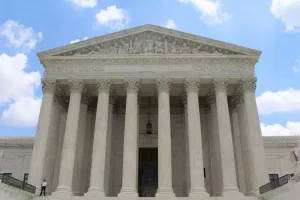
- Originally Published on May 1, 2025
Guide to Ohio Defamation Law | Libel and Slander
When false statements damage your reputation, the emotional toll can be devastating. You may feel angry, betrayed, and powerless as you watch your personal and professional standing suffer from someone else’s malicious words. These feelings are entirely valid—defamation strikes at the core of your identity and can impact every aspect of your life, from relationships to career opportunities. While the damage may feel overwhelming, Ohio law provides specific remedies to help you fight back and restore your good name.
Under Ohio law, defamation is defined as a false statement that causes harm to a person’s reputation, exposes them to public hatred, contempt, ridicule, shame, or disgrace, or affects them adversely in their trade or business. To prevail in a defamation claim, plaintiffs must prove five elements: (1) a false statement of fact, (2) about the plaintiff, (3) published or communicated to a third party, (4) with at least a negligent level of intent, and (5) that was either defamatory per se or caused damage to the plaintiff’s reputation. Ohio distinguishes between written defamation (libel) and spoken defamation (slander), with different standards applying to each form.
What is Defamation Under Ohio Law?
Defamation in Ohio refers to false statements that harm a person’s reputation by exposing them to public hatred, contempt, ridicule, shame, or disgrace, or by adversely affecting their trade or profession. The state recognizes two forms of defamation:
- Libel: Written or published false statements that damage someone’s reputation
- Slander: Spoken false statements that harm another person’s reputation
For a statement to be considered defamatory under Ohio law, it must be objectively untrue and unsubstantiated. Statements that are substantially true, with only minor inaccuracies, are not considered defamatory. Similarly, statements of opinion that cannot be proven true or false are not actionable as defamation.
Ohio courts have found various types of communications to be defamatory, including:
- False emails claiming a cat breeder kept animals in deplorable conditions
- Media reports falsely accusing a business of failing to help customers
- Campaign materials implying a politician accepted bribes
What Are the Elements of a Defamation Claim in Ohio?
To succeed in an Ohio defamation lawsuit, plaintiffs must prove five essential elements:
False Statement of Fact
The statement in question must be objectively untrue and unsubstantiated. A statement that is substantially true, with few immaterial inaccuracies, will still be considered true and thus not defamatory. Likewise, statements of opinion that cannot be proven true or false will not constitute defamation.
About the Plaintiff
The false statement must be “of and concerning the plaintiff.” This means that while a statement need not explicitly identify the plaintiff by name, a reasonable person would understand the statement to be about the plaintiff.
Published or Communicated to a Third Party
The false statement must be “published,” meaning it was communicated to at least one person other than the plaintiff. This can include verbal communications, written statements shared with others, or content posted online.
With at Least a Negligent Level of Intent
The plaintiff must show that the defendant was at least negligent concerning the truth or falsity of their statement. This means the defendant did not act with the reasonable or ordinary care a person would exercise in similar circumstances.
In cases involving public figures or matters of public concern, the plaintiff must establish that the defendant acted with “actual malice” or reckless disregard when publishing the false statement.
Defamatory Per Se or Caused Special Harm
Finally, the plaintiff must show that the false statement either:
- Falls into a category of statements considered inherently harmful (defamation per se), or
- Caused actual, provable harm to the plaintiff’s reputation (defamation per quod)
What is Defamation Per Se in Ohio?
Defamation per se refers to statements that are considered so inherently damaging and inflammatory that harm to the plaintiff’s reputation is presumed without requiring proof of actual damages. In Ohio, a statement may be considered defamatory per se if it falls into one of four categories:
- Accusations of criminal conduct: Statements that accuse the victim of an indictable offense involving moral turpitude or infamous punishment
- Imputation of disease: Statements implying the victim has an offensive or contagious disease meant to isolate or ostracize them
- Injury to profession or trade: Words that injure a person in their trade or occupation
- Public hatred or ridicule: Statements that subject the victim to public hatred, ridicule, or contempt
Ohio has a broader definition of defamation per se than many states, particularly with the inclusion of the fourth category. However, slander per se (spoken defamation) is more difficult to establish than libel per se (written defamation), as libel is considered more permanent.
Examples of Defamation Per Se in Ohio
- In Wilson v. Wilson, a court found that statements calling someone a “pedophile” who viewed “child pornography” constituted defamation per se, allowing the plaintiff to proceed without proving actual damages.
- In Gosden v. Louis, a letter alleging that construction workers were “unprofessional” and engaged in voyeurism was ruled libel per se.
- In Nicolazzo v. Yoingco, online posts accusing someone of unpaid debts were potentially defamatory per se, though the case proceeded to allow the defendant to prove the truth of his statements.
What is Defamation Per Quod in Ohio?
Defamation per quod refers to statements that are not inherently defamatory but become so due to external facts or context. Unlike defamation per se, a claim for defamation per quod requires a plaintiff to:
- Provide extrinsic evidence that supports the falsity of the statement
- Plead and prove the special damages they suffered as a result
Both libel and slander per quod involve statements that contain at least one “innocent meaning that may become defamatory through interpretation and innuendo,” as noted in Wilson v. Harvey.
Example of Defamation Per Quod
In Kanjuka v. MetroHealth Med. Ctr., a nurse sued for slander per quod after colleagues claimed she was leaving her job due to “a psychiatric problem” or “depression.” The court found it reasonable that anyone hearing these statements could conclude, through innuendo, that the plaintiff resigned due to mental health issues, which was false.
What Are the Standards For Private vs. Public Figures in Ohio?
Ohio follows federal precedent in distinguishing between different types of plaintiffs in defamation cases, with varying standards of proof required for each category:
Private Persons
Private individuals in Ohio have greater protection under defamation law. When the matter involves a private concern, private plaintiffs must prove:
- The defendant communicated a false statement with ordinary negligence
- The statement caused actual damage to the plaintiff’s reputation
However, if the matter involves public concern, even private figures must prove actual malice.
Public Figures
Public figures face a higher burden of proof in defamation cases. Ohio recognizes several categories of public figures:
- Public Officials: Government employees whose position has such importance that the public has an interest in their qualifications and performance
- Public Figures: Individuals in positions of “pervasive power and influence” who invite attention and commentary on all matters
- Limited-Purpose Public Figures: Persons who “thrust themselves to the forefront of a particular controversy”
Public figures and officials must prove the defendant acted with actual malice when publishing the defamatory statement, meaning the defendant knew the statement was false or acted with reckless disregard for its truth.
Matters of Public and Private Concern
Even private individuals may need to prove actual malice if the defamatory statement involves a matter of public concern. Ohio considers a subject a matter of public concern if it is of “legitimate news interest and of value and concern to the public,” and encourages “hearty debate” among the public.
For example, in Gilbert v. WNIR 100FM, when a radio station accused a couple of involvement with a murder, the private individuals were required to prove actual malice because “murder is generally a matter of public concern.”
What Damages Can Be Recovered for Defamation in Ohio?
Ohio law recognizes several types of damages in defamation cases:
Presumed Damages
In cases of defamation per se, most Ohio courts presume damages without requiring proof of actual injury. Only one court, the Montgomery Appellate Court, has held that the presumption of damages in defamation per se cases can be rebutted with evidence of no reputational harm.
Actual Damages (Compensatory Damages)
For defamation per quod, plaintiffs must prove actual injury to succeed on their claim. Actual damages can include:
- Out-of-pocket expenses
- Damage to reputation
- Personal humiliation
- Mental anguish and suffering
- Lost business or employment opportunities
Punitive Damages
In cases involving particularly egregious conduct, Ohio allows for punitive damages to punish the defendant. To recover punitive damages, the plaintiff must prove both “common law actual malice and constitutional actual malice,” as established in Anderson v. Baker.
What Is The Statute of Limitations for Ohio Defamation Claims?
Ohio imposes a one-year statute of limitations for both libel and slander claims. This means plaintiffs must file their lawsuit within one year after the defamatory statement is published or communicated, NOT when the victim discovers the statement.
Single Publication Rule
While the Ohio Supreme Court has not explicitly ruled on the single publication rule, lower courts have held that the right to file a defamation lawsuit “accrues upon the first publication of the matter complained of.” This means the statute of limitations begins when the defamatory statement is first published, and plaintiffs cannot initiate an otherwise time-barred lawsuit just because the statement has recently been republished online.
However, in T.S. v. Plain Dealer, an Ohio Court of Appeals left open the possibility of exceptions to the single publication rule in certain circumstances, suggesting that the rule is not absolute in Ohio.
Important Nuances of Ohio Defamation Law
Jurisdictional Requirements
Ohio has a relatively favorable long-arm statute for filing defamation claims against out-of-state defendants. Ohio courts will have jurisdiction over a defamation matter if an out-of-state defendant:
- Posts material online that multiple Ohio residents view
- Defames an Ohio resident (and knows they are an Ohio resident)
This was established in Kauffman Racing Equip. v. Roberts.
Qualified Privilege
Ohio recognizes qualified privilege as a defense to defamation claims. To assert this defense, a statement must be:
- Upholding an interest
- Made in good faith
- Made on a proper occasion
- Limited in scope and purpose
- Made properly to only proper parties
Repetition of Defamatory Statements
In Ohio, all persons who cause or participate in the publication of defamatory content can be held liable for resulting damages. As established in Cooke v. United Dairy Farmers, Inc., “all persons who cause or participate in the publication of libelous or slanderous matter are responsible for such publication.”
It is well-established in Ohio that one can be held liable for repeating another person’s false statements.
Food Disparagement Laws
Ohio is one of 13 states with “veggie libel” laws that protect farmers, manufacturers, and processors of perishable foods from defamatory remarks about their products. Under Section 2307.81 of the Ohio Revised Code, those who make false statements about perishable food items can be sued for up to three times normal compensation.
Criminal Defamation
Unlike 23 other U.S. states, Ohio does not have criminal defamation laws. Ohio repealed its criminal libel statute in 1974, meaning defendants convicted of defamation do not face jail time. Defamation in Ohio is treated as a civil matter only.
Anti-SLAPP Laws
As of January 8, 2025, Ohio has enacted an Anti-SLAPP (Strategic Lawsuits Against Public Participation) statute known as the Uniform Public Expression Protection Act (UPEPA). This law, codified as R.C. 2747.01, protects defendants from lawsuits designed to chill free speech by providing an expedited process to dismiss meritless claims.
The statute applies to causes of action based on:
- Communications in governmental proceedings
- Communications on issues under consideration in governmental proceedings
- Exercise of constitutional rights of free speech, press, assembly, petition, and association on matters of public concern
Key features of Ohio’s Anti-SLAPP law include:
- Limited timeframes for filing motions and court rulings
- Immediate right of appeal for denied motions
- Automatic stay of discovery upon filing
- Provision for attorney’s fees to prevailing parties
- Specific exceptions, including a “commercial speech exception”
Importantly, Ohio’s Anti-SLAPP law does not bar meritorious claims but requires plaintiffs to demonstrate the validity of their claims before proceeding to costly discovery. Courts are instructed to consider how similar laws are applied in other states to promote uniformity.
Frequently Asked Questions About Ohio Defamation Law
Can You Sue For Defamation of Character in Ohio?
Yes, you can sue for defamation of character in Ohio if your claim meets the five required elements: (1) a false statement of fact, (2) about you, (3) published to a third party, (4) with at least negligence, and (5) that was either defamatory per se or caused special harm. You must file your lawsuit within Ohio’s one-year statute of limitations.
How Difficult is it to Win a Defamation Lawsuit in Ohio?
Winning a defamation lawsuit in Ohio can be challenging due to the short one-year statute of limitations and the need to prove all five elements. The difficulty increases if you’re considered a public figure or if the statement involves a matter of public concern, as you’ll need to prove actual malice. Each case is unique and depends on the specific facts and evidence available.
How Long Do Defamation Cases Take in Ohio?
Most Ohio defamation cases take 12-24 months to resolve. Simple cases with clear evidence may settle in under a year, while complex cases involving multiple defendants or extensive discovery can extend to several years. The timeline can be affected by court backlogs, settlement negotiations, and whether appeals are filed.
What Should I Look for in a Defamation Attorney?
Look for an attorney with specific experience in defamation cases, particularly those involving online defamation if your case concerns internet content. The attorney should have a proven track record, clear communication style, and transparent fee structure. They should also be familiar with Ohio’s specific defamation laws and procedural requirements.
Work With the Ohio Defamation Lawyers of Minc Law
If you’re facing defamation in Ohio, the experienced defamation attorneys at Minc Law can help protect your reputation and seek appropriate remedies. Based in Cleveland, Ohio but serving clients nationwide, our team has litigated over 350 cases and removed over 200,000 pieces of defamatory content from the internet.
When you work with Minc Law, you can expect:
- Utmost courtesy and respect: We understand how stressful and overwhelming defamatory attacks can be and will treat your case with the seriousness it deserves
- Open communication: We’ll keep you updated throughout the process and promptly respond to your questions
- Proven results: We’ve worked successfully with countless website administrators, content managers, and third-party arbitration firms to secure swift and permanent removals
Our experienced internet defamation attorneys use both litigation and alternative dispute resolution to advocate for our clients. We can help you determine if you have a valid defamation claim, identify the best jurisdiction for filing your lawsuit, gather and preserve evidence, and navigate all pre-suit requirements through to successful litigation.
Don’t let defamation control your narrative. Contact Minc Law today at (216) 373-7706 or by filling out our contact form below to get a free case review.
Get Your Free Case Review
Fill out the form below, and our team will review your information to discuss the best options for your situation.
This page has been peer-reviewed, fact-checked, and edited by qualified attorneys to ensure substantive accuracy and coverage.


